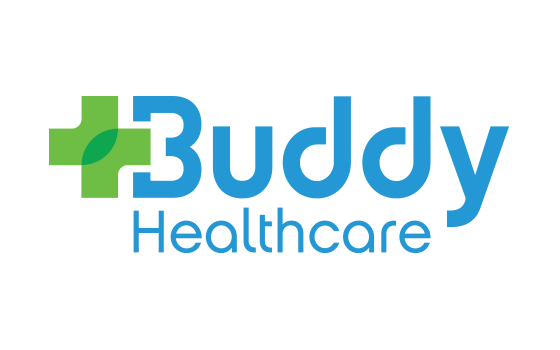 Buddy Healthcare wants to help hospitals and healthcare professionals in the battle against the COVID-19. BuddyCare virtual care platform can be used for not only symptom tracking, remote monitoring and data collection purposes but also in digitizing secure communication between the individuals/patients and healthcare professionals.
Buddy Healthcare wants to help hospitals and healthcare professionals in the battle against the COVID-19. BuddyCare virtual care platform can be used for not only symptom tracking, remote monitoring and data collection purposes but also in digitizing secure communication between the individuals/patients and healthcare professionals.
How does the COVID-19 remote care solution work?
1) Hospitals assign the COVID-19 mobile app to the individuals/patients who have either mild symptoms or diagnosed infections without symptoms.
The mobile app contains the following:
- Accurate, timely information and instructions about COVID-19 published by healthcare authorities/health agencies.
- A symptom checker that allows app users to report daily symptoms. The symptom checker asks users each day if they have, for example, fewer, coughing, sore throat, or breathing problems.
- Geographical location and the app user data (gender, age, health), which provides healthcare authorities real life data if the COVID-19 coronavirus starts spreading in certain areas or certain patient profiles.
2) Meanwhile, assigned mobile app users fill symptoms and data to their mobile app; hospitals can monitor, receive alerts, communicate with the patients, and produce reports for analysis.
The hospital monitoring dashboard contains the following functionalities:
- Care personnel can monitor periodically the symptoms and well-being of at-risk individuals.
- The dashboard creates alerts when the specified thresholds are exceeded and then can call the individuals/patients to the hospital.
- Secure messaging allows patients - care personnel interaction during the whole care pathway. Dashboard helps in for example identifying patients at-risk and care personnel can send personalized instructions related to quarantine.
- The dashboard collects pseudonymized data of the app users for building an overview to support further analysis about symptom development in certain patient profiles or geographical areas.
Buddy Healthcare offers the possibility for healthcare professions or health agencies to check out COVID-19 remote care app. Just send an email to This email address is being protected from spambots. You need JavaScript enabled to view it., and you will be provided with instructions and activation code for login.
"Our modular platform and several years of experience in digital health enabled us to develop the COVID-19 remote care solution only in a few days. We wanted to act as quickly as we could as we have now this sudden high need to identify patients at-risk, expedite access to screening, and medical care," says Jussi Määttä, Buddy Healthcare's CEO
Buddy Healthcare challenges the digital health companies with relevant technologies to support hospitals and health agencies in this battle against COVID-19.
For further information, please visit:
http://www.buddyhealthcare.com
About Buddy Healthcare
At Buddy Healthcare, we help our customers drive a 5-star patient experience. Our dedicated team works day-in and day-out to transform pre- and post-surgical care together with our customers. We want to solve the most significant problems hospitals, clinics and patients are facing in surgeries: patient adherence to treatment, late cancellations and no-shows, administrative work and care quality.Care personnel doesn’t know how their patients are doing before, and after surgeries, they don’t have tools to monitor patients and receive up-to-date health information, and they spend an extensive amount of time on communications and paperwork. Vice versa, patients don’t want to be any more bystanders in their own treatment. They want to participate in decision-making actively, receive easy-to-follow timely instructions and support and always know what will happen next in their care path.